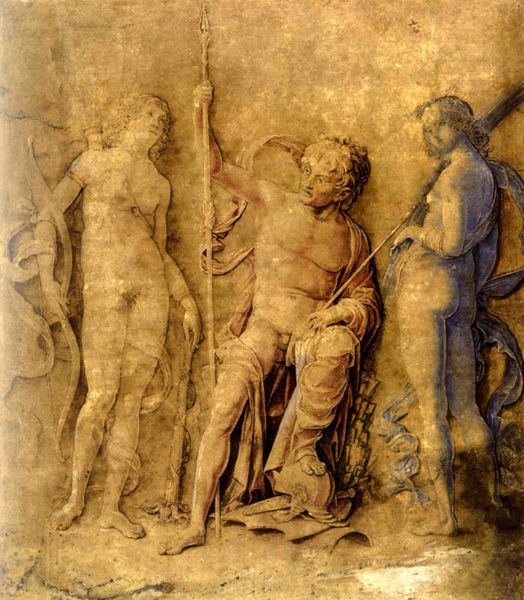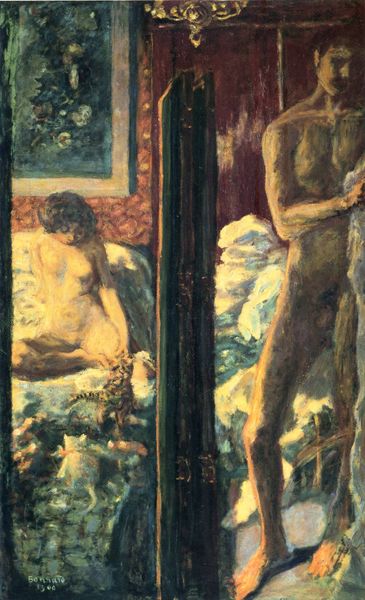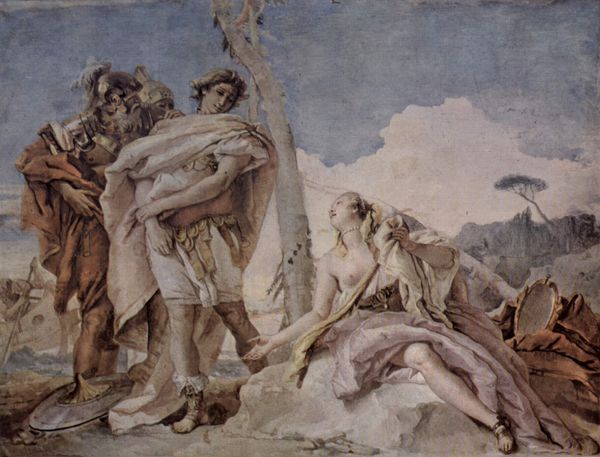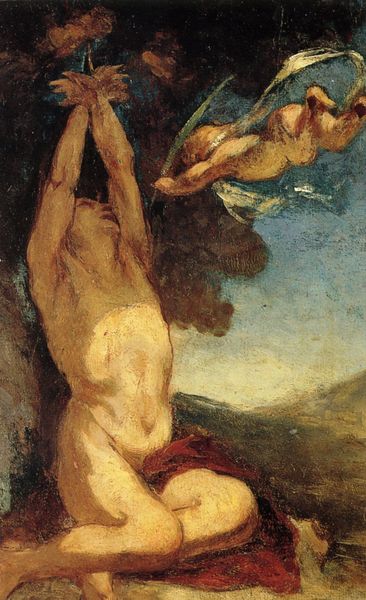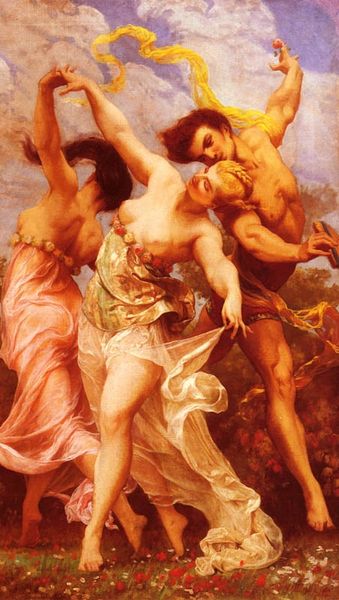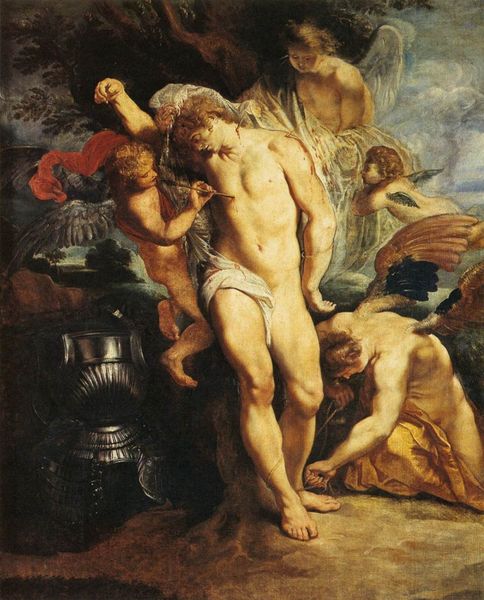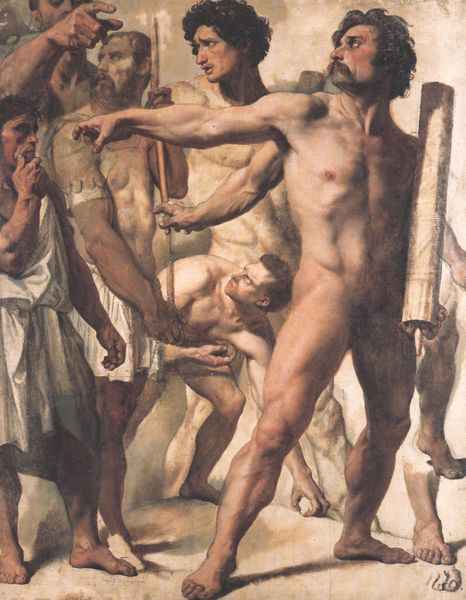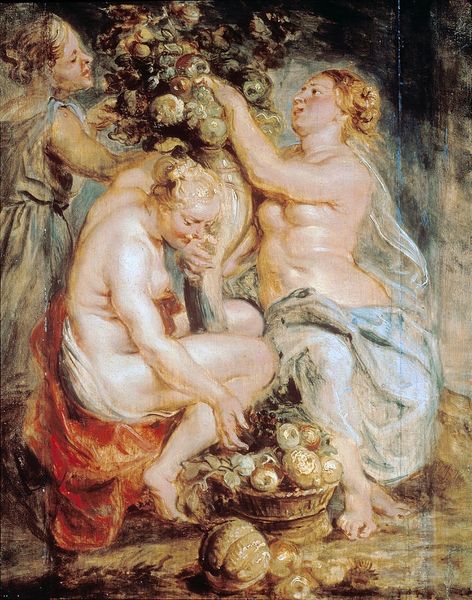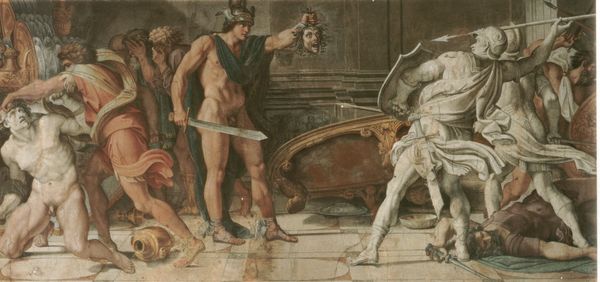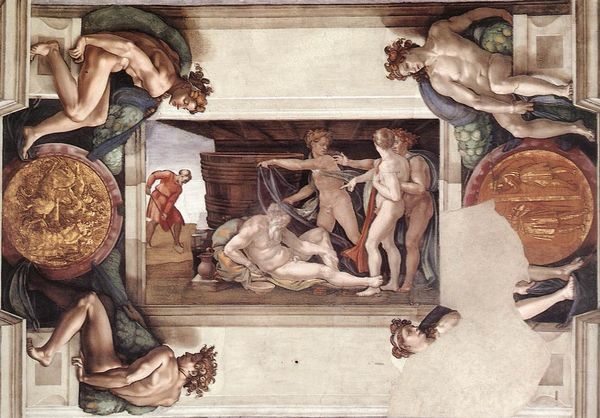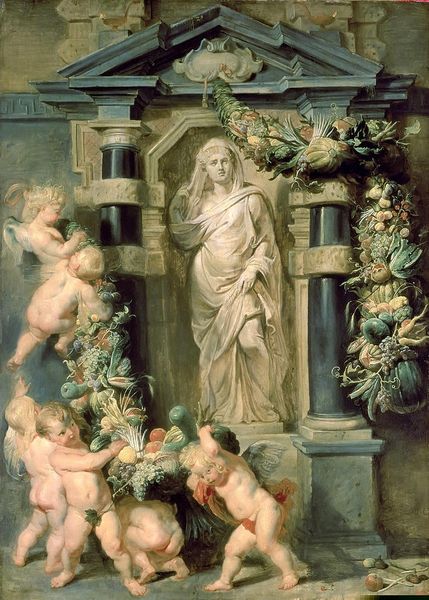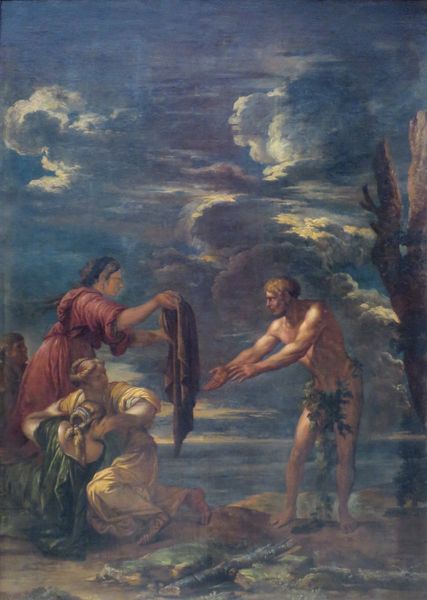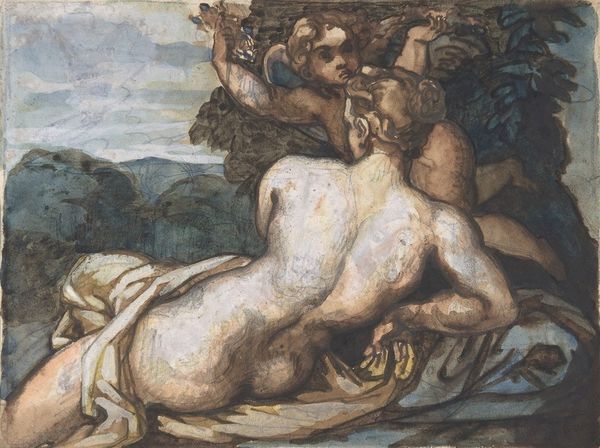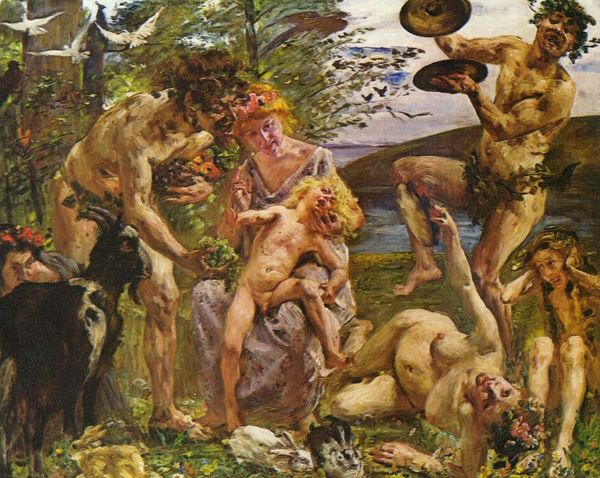
Copyright: Public domain
Curator: Let’s turn our attention to Gustave Moreau’s "Jacob and the Angel," painted in 1878, and currently housed in the Musée National Gustave Moreau in Paris. Editor: Immediately striking! The composition and use of color give it such an otherworldly feel—almost dreamlike. The hazy treatment of the figures is rather captivating. Curator: It’s true; Moreau's dreamlike treatment really embodies the symbolism movement, of which he was a key figure. The subject matter of Jacob wrestling the angel invites discussion around themes of struggle, divine encounter, and transformation of identity. This painting deeply resonates with intersectional narratives, challenging conventional notions of power and submission within religious stories. It’s impossible to overlook its socio-political underpinnings—this representation questions rigid religious constructs while providing fertile ground for more diverse representations of spiritual quests. Editor: Looking at the balance between light and shadow and the vertical emphasis achieved by the composition makes one read this tempera work in symbolic terms as well. I see the subdued palette contributing to the feeling of unease and uncertainty within this mythic clash. Note the intricate details present in the Angel's wings against Jacob’s earthy physicality, achieved using fine lines and textures—a study in contrasts that captures a profound sense of metaphysical tension. Curator: Precisely. Moreau consistently challenges the viewer to delve into the complexity of personal struggles mirrored by historical and societal pressures. Through the lens of feminist theory and cultural studies, the narrative pushes beyond its immediate interpretation into a potent statement about resisting imposed boundaries and embracing self-discovery amidst conflict. Editor: Ultimately, what stands out for me is that tension between ethereal beauty and grounded reality captured within a highly structured compositional space—something incredibly central to Moreau's genius. Curator: Yes, it's a wonderful testament to the enduring human desire for recognition and ultimate autonomy, mirrored in folklore and our ongoing dialogues.
Comments
No comments
Be the first to comment and join the conversation on the ultimate creative platform.
